Starting graduate school is an exciting but challenging time that is full of unknowns. To help you learn from those who have been there, The College of Graduate Studies had six upper-year graduate students share what they wished they knew when they started graduate school. Read what they had to say below.
Fatima from the Faculty of Health and Social Development, 2nd year Nursing
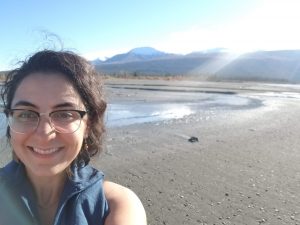 |
“Connection off-campus is so important for graduate student success. I really encourage you all, especially now, to set up two main points of connection early on in your degree.”
“The first is with your supervisor. In my first year, I did not set up regular meetings with my supervisor. I definitely struggled, and going into my second year I realized that I did not have to go through these challenges alone. By setting up these meetings, I was able to get my questions answered on a regular basis and developed a valuable relationship with my supervisor, which made my experience go much smoother. The Centre for Scholarly Communication (CSC) also played a big role in my success. As a nurse, there was more writing in graduate school than I was used to previously. By reaching out to the CSC, I was able to get help writing a fellowship proposal and organizing many of my final papers. Academically, my grades went up, but I also felt less stressed having extra support. If I could do it all over again, I would start a connection with them much earlier and take greater advantage of the workshops and one-on-one consultations more frequently.“ |
Manjinder from the Faculty of Creative and Critical Studies, 2nd year Creative Writing MFA
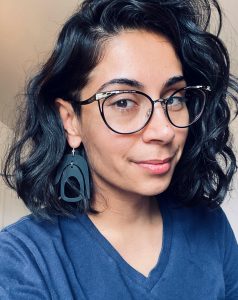 |
“Firstly, I encourage everyone to learn more about the relationships that we carry as settlers to the land that we are studying on and living on. This was an important part for me as I began my studies on the UBC Okanagan campus as a settler.”
“I took an 11-year hiatus before returning to graduate studies and had a very set idea of what I wanted from my studies when I started. However, as I got deeper into my program, the more I discovered how much I didn’t know. That’s when I learned about ‘The Four Stages of Learning’. The first stage is called ‘Unconsciously Incompetent’, where you really don’t know how much you don’t know. This is where I felt I was in those first few weeks of September. A blissful time I can assure you. As the term wore on, I entered the second stage which is known as ‘Consciously Incompetent’. This is where you begin to realize just how much you don’t know. And this is an uncomfortable place to be for us graduate students: for all our years of learning, it seems like a back to square one moment. Yet I would like to encourage you to think about how this lack of knowing can open up opportunities for you. I encourage you all to get uncomfortable and really think about how you want to approach all this ‘unknowledge’ that is at your fingertips. Graduate studies will give you the space, the time and the legitimacy to tackle this space of unknowing. I also wish someone had told me that it is so important to sit down and understand your habits. Ask yourself questions like, ‘When am I most productive?’ or ‘Where do I work best?’ or ‘Do I procrastinate?’ Use that information and work with it. I know that I’ll procrastinate to a deadline, so I’ll set the deadline in my calendars a week in advance – building some extra time for myself to not leave it to the last minute.” |
Maya from the Faculty of Arts and Social Sciences, 2nd year PhD in Psychological Sciences
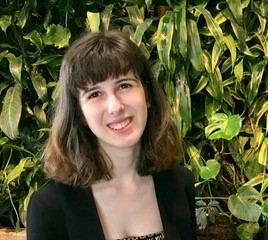 |
“I started Grad School right after undergrad. It was definitely a bit of a rough transition for me because there are huge differences. I really wish someone had told me that it’s a really great idea to always have one project in each stage of development. It takes a while to balance this, but as I began my studies, I would only work on a research project at a time and this would put a lot of pressure on that project, especially if there were delays. If you have another project in development, if one is delayed you can always shift your attention to another project while the other is being looked at by your supervisor, and make good use of your time. Professors do this as well once they are more experienced in academia, so I knew by doing this I was on the right track. Again, I encourage you to keep a healthy balance and not overload yourself!”
“I wish I had realized how important it is to be friends with the other students in your lab. It’s great to have someone who understands how stressful it is and have a resource to talk to that knows what you are going through. It’s also good when this person shares the same supervisor with you. When I began my studies, I didn’t know how to communicate with him. If he was a bit slower at responding to an email, my labmate and I would advocate for each other and remind our supervisor to take a look at the other stuff. My labmate had also been in grad school for a year longer, so she knew her way around and how to work with my supervisor, and she definitely showed me the ropes. She was a great source of support, and if you have this opportunity, I would encourage you to make connections with the other people in your lab. Finally, I think you should try to take advantage of the connections your supervisor has. I knew that as a student, I wanted to get a breadth of research experience and visit other universities to research there and get experience. I didn’t know how to set this up, but it turns out that my supervisor has many connections in California and all it took was me asking if he could reach out to them and that way I could spend my summer doing research in LA. Your supervisors have a lot of experience, so it is worth talking to them to see if they can connect you with other people in your field. If it isn’t for research experience, maybe it is to sit down with others and talk to someone in the career field you’re interested in. Asking for what you want and advocating for yourself is very important.“ |
Shambhavi from the Faculty of Science, 2nd year PhD in Math
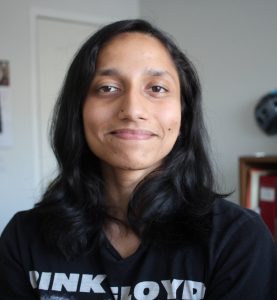 |
“The one thing I wish I knew when I started grad school was how important it is to communicate with your peers. Not only will you be able to talk through how to approach your supervisor, but a lot of valuable research ideas can come from talking it out with other students in your discipline. Your peers can recommend books or resources to help you tackle challenging tasks.”
“Also, have your elevator pitch ready, not just for interviews, but for people like your close friends and parents. Most of the time, when my parents ask me what I do, all I can say is “I code…sometimes.” Which is not a very good answer! I think it is super important to learn how to explain what you do to a layperson, not only does it help you become more proficient in communicating ideas, but it also can give you the assurance that what you are doing is helpful and valuable. It is especially hard in fields like pure math when it is difficult to see an application for something that is not easy. This will help you write a lay summary for your thesis (insert workshop) or even with the 3MT, where you have to explain your research in 3 minutes.“ |
Jody from the Faculty of Education, 3rd year PhD in IGS
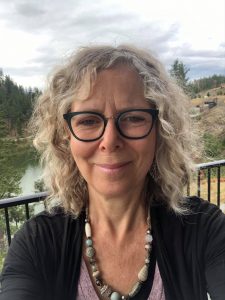 |
“I learned that every student that I met would come with a whole new set of experiences and perspectives and there is so much to learn from them! Connect with the other students and build a cohort if you don’t have one. Meet online, that is what I am doing with the Okanagan Faculty of Education. We meet a few times a month, and it is very helpful to see what other students are doing.”
“I realized I would be learning a whole new academic language, even though I came from a lengthy career in education. There was much at this point in time that was brand new to me. My subject librarian was a great help to me, as well as the CSC. Their workshops are phenomenal. Another recommendation would be to attend every online session that you can that is outside (or inside) of your primary field of study. When you watch scholars from different disciplines, you get different perspectives of research, for instance, through a lens of science, social science, or humanities, or arts-based infused, but you will learn to see those views if you are truly becoming an expert interdisciplinary researcher, and when you watch other scholars, you can take notes and use them in your papers, it does not always have to be something you read. One of my profs encouraged this. I was so surprised how much valuable information I got for my papers from this. IGS is hugely beneficial and you can be so enriched by it, no matter your background of study! I learned quickly that I had to use a lot of computer storage to store my readings and papers. To be able to save those and highlight them has made my life so much easier. Be open to everything! Everything is fluid, and there is a lot that is welcome at the university and research ethics board. They are open to new research ideas and unique approaches, so I encourage you to breathe it all in, stay connected the best that you can in these times, but there are advantages to this too.“ |
Ben from the Faculty of Engineering, 2nd year PhD in Electrical Engineering
 |
“I wish I had known when I started that this degree is truly yours to make your own. It is important to take time to figure out what you like- how you like to do research, how you like to learn and figure it out as soon as possible to make the future process much easier. Grad studies is a unique opportunity that is open-ended. It is not like undergrad and not as strict on courses.”
“Keep in close, honest contact with your supervisor in regards to what you want to learn and how you want to approach certain problems. Having a say in what you are doing will make you enjoy it more and allow you to be more productive. You have a lot of freedom to take different classes, learn in new ways, research many different ideas and tackle projects many different ways- keeping yourself organized and figuring out your direction early on could help a lot and give you peace of mind in the future.“ |